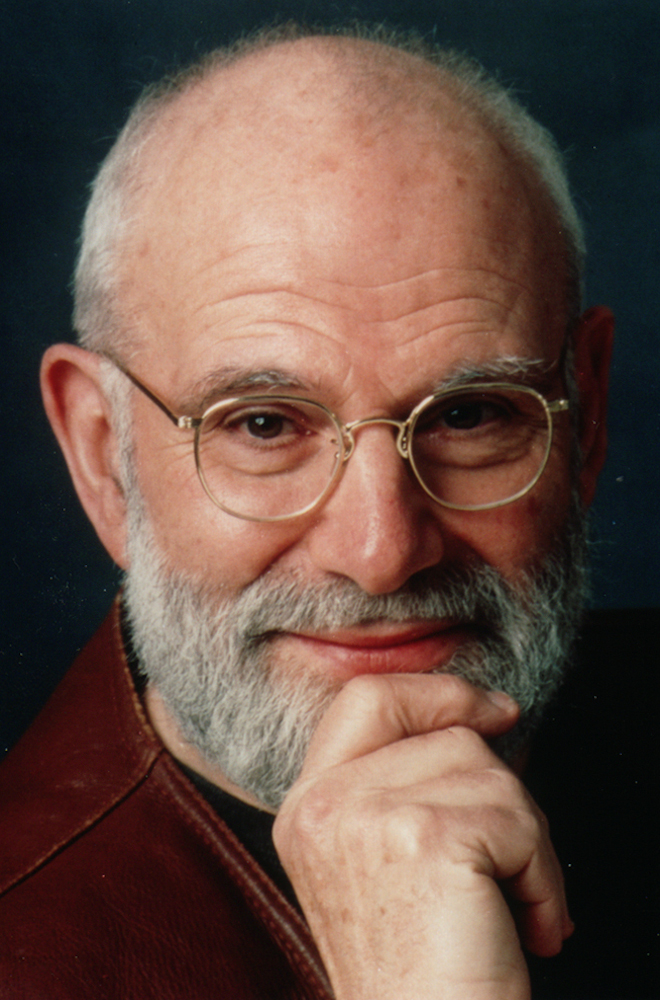 White Privilege
White Privilege
Scott Adams has been in the news for all the wrong reasons lately, specifically for making racist comments. Looking at what he actually said, however, this seems like a storm in a teacup. He did not claim that people of one skin color are inferior to others, he only dared to present a viewpoint on race politics that (understandably) made a lot of people uncomfortable.
He’s also taken plenty of flak for his support of Trump. This, in fact, is the reason I stopped listening to his podcast. 90% of his praise for that particular individual is about his media strategy, though, as described in detail in Win Bigly. Actual policies and social issues rarely come into it – the top Scott Adams books aren’t by any means decorated with swastikas.
Best Scott Adams Books
| Photo | Title | Rating | Length | Buy |
|---|---|---|---|---|

|
The Dilbert Series | 9.86/10 | 50 Books | Check Price On Amazon |

|
How to Fail at Almost Everything and Still Win Big | 9.76/10 | 247 Pages | Check Price On Amazon |

|
Loserthink | 9.54/10 | 256 Pages | Check Price On Amazon |

|
Win Bigly | 9.52/10 | 320 Pages | Check Price On Amazon |
Speaking His Mind
The media circus surrounding this author (and, by extension, Scott Adams’ best books) is actually due to his finest quality as a writer and commentator: he simply doesn’t care what other people think of him. He has enough money not to mind if a majority of newspapers drop his Dilbert comic strip and, by his own admission, he’s functionally immune to embarrassment.
How often do you get the chance to read the thoughts of somebody who doesn’t give a damn whether or not you agree with him, and only asks that you listen to his whole argument before making up your mind? Assuming you’re willing, here are the top ten Scott Adams books ranked roughly by popularity:
The Dilbert Series
 There’s a Little Dilbert in Each of Us
There’s a Little Dilbert in Each of Us
That funny-looking guy with the glasses is called Dilbert. His life falls somewhere in between quiet desperation and a looming psychotic break caused by terminal frustration with his job, colleagues, and manager. He’s often the smartest person in the room, and almost always the most socially inept. And, in case you were wondering why his tie sticks out like that, Adams offers two possible explanations: a) it symbolizes Dilbert’s inability to control even the smallest aspects of his life, or b) he’s just happy to see you.
Dilbert does not have all that many close acquaintances, and his occasional girlfriends soon find out that dating an engineer is a little like trying to nail jell-o to the ceiling. Fortunately, he has a pet dog to ease the loneliness. Unfortunately, Dogbert not only talks but is a sociopath who practices world domination as a hobby.
Corporate Hell
Hanlan’s razor states: “Never attribute to malice that which is adequately explained by stupidity.” This pretty much describes Dilbert’s workplace, which may resemble your own to a surprising degree.
It’s never made entirely clear what exactly Dilbert’s company makes or does; Dilbert himself may not know. His pointy-haired boss almost certainly doesn’t have a clue, though at least he is a genius at scheduling meetings. Dilbert’s other colleagues are a mixed bag of naive optimism, amorality, malicious compliance, and personality disorders. The one thing they have in common is that their contributions to the company are rewarded only by accident, if ever.
Lampooning the Workplace
One reason many of the diverse characters in Dilbert’s world are so relatable is that several of them are based on individuals Adams used to work with. A lot of the time, we can all recognize exactly what kind of situation is being depicted in each comic because we’ve experienced pretty much the same thing ourselves. Several people have wondered aloud if Scott Adams is getting insider information from their own offices. This is a distinct possibility, as he often incorporates workplace stories sent to him by his millions of loyal readers.
Three illustrated panels aren’t enough to make any kind of profound point, though. Once Dilbert started to take off in newspapers, the author began to collect strips on different themes and, in some cases, fleshed them out with short chapters. He uses these to share his opinions on directionless leadership, weird and short-lived management fads, irrational bureaucracy, meaningless jargon, and Machiavellian office politics. This turned out to be a wise decision, resulting in some of the best books by Scott Adams.
Great Gifts
The Dilbert series is very readable and will strike a chord with anyone who’s spent time in a traditional office. These books don’t have quite the same amount of intellectual meat as Win Bigly or Loserthink, but that’s okay: their primary goal is to entertain, not change the face of corporate America. Accept that Adams often speaks in hyperbole: what else would you expect from a cartoonist?
The one mistake you (or the recipient, if you bought it as a present) shouldn’t make with these books is to read them all the way through in one sitting. These comic strips were originally published one per day, and that’s the way they’re meant to be consumed. Overloading on them turns the humor stale very quickly. If you need a book that will occupy more of your time while also giving you an opportunity to think about the modern workplace and how to fit into it, something by Simon Sinek is probably a better idea. You don’t read Scott Adams’s books in order to figure out how to fix the many deficiencies in today’s large companies and their management styles, but rather to poke fun at them.
Not Everything to Everybody
Given the ubiquity of Dilbert comic strips, which can be found pasted onto office refrigerators all over the world, there’s a good chance that you’ve already seen a few of those you’ll find in these books. Others are a little dated, with fax machines and pagers still having been in use. These are still funny, though: clueless management is as eternal as the tides.
Humor is very subjective, of course. Even in the best Scott Adams book series, a couple of jokes are going to fall flat for you some of the time, especially if you haven’t been unlucky enough to work at a thankless job in a large organization. The same themes also get recycled time and again. This is part of Dilbert’s charm, but can also get a little tedious especially if you consume too much of it at once.
Which to Choose?
Some of these books, like I’m Not Anti-Business, I’m Anti-Idiot, are collections dating from particular periods in Dilbert’s three decades in print. Others, including Dogbert’s Clues for the Clueless, are organized around loose themes or feature particular characters.
Even with several dozen Dilbert books to choose from, though, you can’t really go wrong. There is some repetition of material, but you aren’t likely to see the same comic strips too many times even if you order half a dozen of these best-selling Scott Adams books. Any of them can be a great conversation starter if left lying around your office or living room: however much people have come to detest their creator, his comics remain perennial favorites.
How to Fail at Almost Everything and Still Win Big

 How Success Works in the Real World
How Success Works in the Real World
Aside from the best kinds of biographies, the careers of figures like Steve Jobs and Elon Musk are often represented as an ever-upwards struggle. There are obstacles and setbacks along the way, of course, but these special individuals are somehow blessed with a drive and sense of purpose that relentlessly draws them towards some objective that’s always clear in their minds.
Scott Adams’s own path to success was far more like a zig-zag than a straight line. As the title implies, he was simply fundamentally bad at many of the things he tried his hand at. He never screwed up in a way that stopped him from attempting something new, though.
Systems and Skill Stacks
Like John Maxwell points out (at length) in his book Failing Forward, each mistake is really an opportunity to learn. Avoiding failure also means stifling your own ambition and is a guaranteed route to perpetual mediocrity. As in all of the best-rated Scott Adams books, How to Fail’s writing style is a lot more lighthearted and easy to digest. The author genuinely seems to feel little shame about his many missteps, which he describes with humor and commonsense objectivity.
He also freely admits that his opinions on career development aren’t going to apply to everybody. If you’re a mathematical genius, you should probably head to MIT rather than deliberately seeking out failure as, say, a fry cook. Much of the advice you’ll find here does seem relevant to most of us, though. For example, Adams emphasizes the importance of doing the right things consistently – following a system – rather than obsessing over milestones. He also points out that combining several ordinary abilities in a meaningful way – building a skill stack – is often worth more than excelling in one specialized area.
The Avatar Series
 Two Thought Experiments
Two Thought Experiments
While his comic strip collections will probably always be the most popular Scott Adams books, he’s also tried his hand at light philosophy. In these two books, God’s Debris and The Religion War, he doesn’t offer many answers, least of all pat ones. Instead, he encourages the reader to ask a few tough questions and perhaps challenge their opinions on the very nature of reality itself. This characteristic makes the Avatar books the best Scott Adams series to give to thinkers who happen to like his comedic style.
This means that the best approach to these novels by Scott Adams includes an open mind. The Religion War in particular is likely to offend a few people. That’s kind of the point, though. The premise of these two books could be stated as: assuming that all of your most cherished beliefs are wrong, could some hypothetical all-knowing person prove it in a way that will satisfy and convince you?
Big Ideas, But Little Rigor
In keeping with these books’ approach of posing questions rather than supplying definitive solutions, the author shows incredible intellectual curiosity and creativity in coming up with ideas and possibilities. He’s open about not knowing much about quantum physics or theology, which respectively provide much of the basis for these books. This doesn’t matter, though: he’s not trying to build a new philosophy, he’s simply questioning assumptions many of us share and consider self-evident.
We can forgive the many lapses in logic, especially since these books are best thought of as Scott Adams novels rather than doctrinal manifestos. There isn’t much of a plot to speak of, though. Both books are essentially monologues from a highly intelligent, irreverent guy with a gift for explaining complex, offbeat concepts in an approachable way.
Loserthink

 The End of Informed Debate
The End of Informed Debate
Looking back over the last few years, it’s clear that one of two things must have happened: either I’ve gotten much smarter, or the standard of public discourse has dropped significantly. And there’s absolutely no evidence to show that I’ve become smarter. In Scott Adams’s latest book, he calls out propaganda, social media echo chambers, and especially the mental laziness that allow them to succeed. Critical thinking certainly isn’t taught at high school level, so the simple principles he provides for telling facts from politically motivated disinformation are worth their weight in gold.
Win Bigly touches on the same theme, but Loserthink is the best Scott Adams book if you’re looking for a kind of manual for navigating social and mass media. We all know, at some level, that we can’t read other people’s minds, that the simplest explanation isn’t always the right one, and that anecdotes don’t constitute proof. Seeing these and other logical fallacies in black and white doesn’t hurt, though, especially when supplemented with Adams’s tongue-in-cheek explanations (something that makes all the best Scott Adams non-fiction books worth reading).
The Superhero We Need
Especially in this new book, Scott Adams comes across as the stereotypical cantankerous old geezer: unapologetically opinionated, full of himself, and perfectly happy to needle others. He’s also well into retirement age, white, and rich – I suspect these factors shape his outlook more than he realizes.
This book would have been better if Adams hadn’t injected so much of his own opinions and personality into it. Regardless of whether you like him, though, Loserthink nicely rounds out the non-fiction Scott Adams book list. Try as I might, I can’t think of any other work that covers the same ground, and certainly not in such an accessible way.
Win Bigly

 An Accurate Postmortem of Trump’s Media Strategy
An Accurate Postmortem of Trump’s Media Strategy
Even before his most recent fall from grace, Adams had been courting an adversarial relationship with the media for some time. In particular, he predicted that Donald Trump would win in 2016 long before most commentators saw him as a serious contender; worse, he called out journalists on both sides for their borderline-unethical conduct during the election. Even though he didn’t initially support Trump, neither of these choices made him many friends.
Trump’s campaign, in fact, gave him the opportunity to write about a topic he’s wanted to cover for some time. Win Bigly is arguably Scott Adams’s best book because of the ground it breaks. Paving the way for Loserthink, he explains how “persuasion” in the broader sense of the word works in the modern world.
Some Disquieting Thoughts
Much of his analysis, most of which uses Trump’s 2016 campaign for examples, will make you want to turn off your TV for good. To start with, he states right in the title that “facts don’t matter”. This isn’t the kind of hyperbole that has gotten him into hot water on other occasions: he literally believes that there’s only a tenuous connection between reality and most people’s opinions.
We are all ruled by our feelings – perhaps especially when we believe that we are deciding things rationally. The issues we spend the most time and energy debating often aren’t the most important but have been made to appear so. Logic barely ever enters the picture except in an extremely flawed form, and most of the opinions you hold aren’t really your own. These are some bitter pills to swallow, yet at its best, the narrative by Scott Adams flows almost like a novel. This is a great book to open your eyes to the inescapable effect persuasion has on all our lives, as well as an introduction to using it yourself (ethically, we hope!).
Final Thoughts
As a cartoonist, Scott Adams combines sardonic humor with astute observations on workplace culture and flawed approaches to management. Many people wish he had never gone outside this genre: Stick to Drawing Comics, Monkey Brain! is actually the title of one of his books.
Criticism of this author’s non-humor books is generally of one of two types. Many Scott Adams book reviews are along the lines of “He’s wrong because I don’t agree with him” and can safely be ignored. More importantly, he’s often censured for presenting his opinions poorly and without actually proving anything. This is true, but also irrelevant: Scott Adams’ books aren’t a matter of dogma, but rather an invitation to make up your own mind (assuming that you’re capable of doing so).
Michael Englert
Michael is a graduate of cultural studies and history. He enjoys a good bottle of wine and (surprise, surprise) reading. As a small-town librarian, he is currently relishing the silence and peaceful atmosphere that is prevailing.





